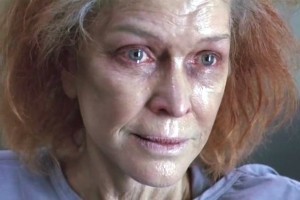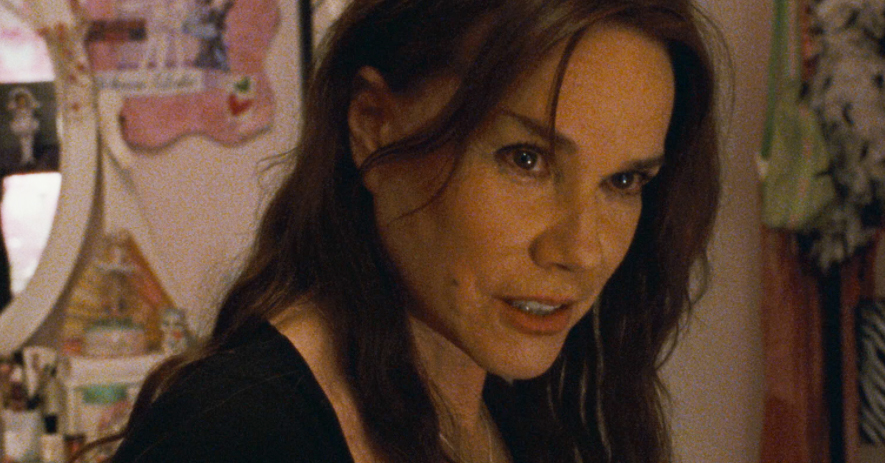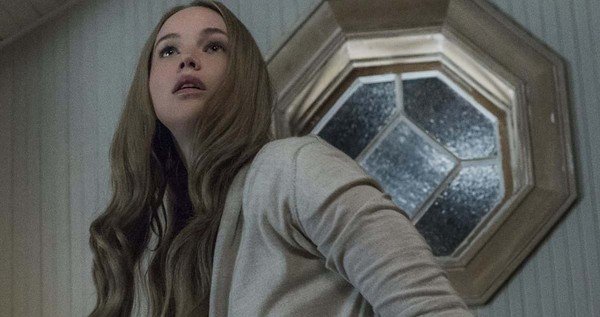by Jorge Molina
 With his latest film mother!, Darren Aronosfky immerses us in a hellish landscape of biblical allegories, nightmarish house parties, and scenery-chewing performances. It's his most polarizing film so far, and he takes the audience to emotional and visceral places he hasn’t before (hello, newborn baby).
With his latest film mother!, Darren Aronosfky immerses us in a hellish landscape of biblical allegories, nightmarish house parties, and scenery-chewing performances. It's his most polarizing film so far, and he takes the audience to emotional and visceral places he hasn’t before (hello, newborn baby).
And yet, something remains hauntingly familiar about it. Aronofsky has mommy issues. Throughout his filmography, mothers are figures of unflinching and painful devotion. Women who lose themselves in the love they have to give, a trait which ultimately becomes their doom. They are designed to bestow upon...

They are martyrs.
In Requiem for a Dream, Ellen Burstyn plays Sarah Goldfarb, a lonely and forgotten mother who craves the attention of her drug addict son (Jared Leto) and clings to relevance when she receives an invitation to attend a game show. Her utter desperation to be seen leads her to a dangerous addiction to diet pills, which grows increasingly direr as the movie progresses. Her ardent but self-destructing dedication proves to be fatal.
In Black Swan, Barbara Hershey is Erica Sayers (also credited as The Queen, no arguments there), a woman who channels her former passions and frustrated ballet career into her infantilized daughter, Nina (Natalie Portman). Erica’s day-to-day revolves solely around her daughter; she quite literally sacrificed her own career so that Nina would be successful. She both provides and resents the attention that Nina is getting. Her fervent, if misguided devotion may translate into painstaking control, but, in a wicked way, it’s doomed mother’s love

And, finally, in this year’s mother!, Jennifer Lawrence plays what might be Aronofsky’s most literal and vicious interpretation of his maternal trope so far. Whatever interpretation you want to give the movie, Lawrence (as a character who has no given name, only "mother") plays a woman that is fully, unflinchingly, and painfully devoted to her husband, her home, and her family. She is a source of life, of love, of inspiration. She rebuilds. She is a muse. With her bare feet, her draped dresses, her resolute loyalty, she is a Mother, with a capital M. (Aronofsky won't even give her that in the lowercase title.)
And it’s all for nothing. Everything she creates is taken from her. Her home, her husband, and her child are destroyed, rampaged, invaded. The love she gives is repaid with savagery.
(It’s worth mentioning that in this same movie, Michelle Pfeiffer plays a second mother who is unlike any other in the Aronosfky cinematic universe. She is the only mother that willingly takes instead of giving, but that is perhaps for another piece.)

For Aronofsky, all the love, devotion, and sacrifices that a mother makes for either her home, her family, or her own survival mean nothing. Sarah’s need for love turns into an addiction that turns into electroshock therapy. Erica’s sacrifices and devotion turn into manic helicopter patenting that turn into a psychotic breakdown. Mother’s unflinching affection turns into a home invasion that turns into a literal biblical sacrifice.
These women are not acknowledged. Their pain is lonely and their love never returned. They are doomed to suffer for others. Does Aronofsky love to see them bleed?